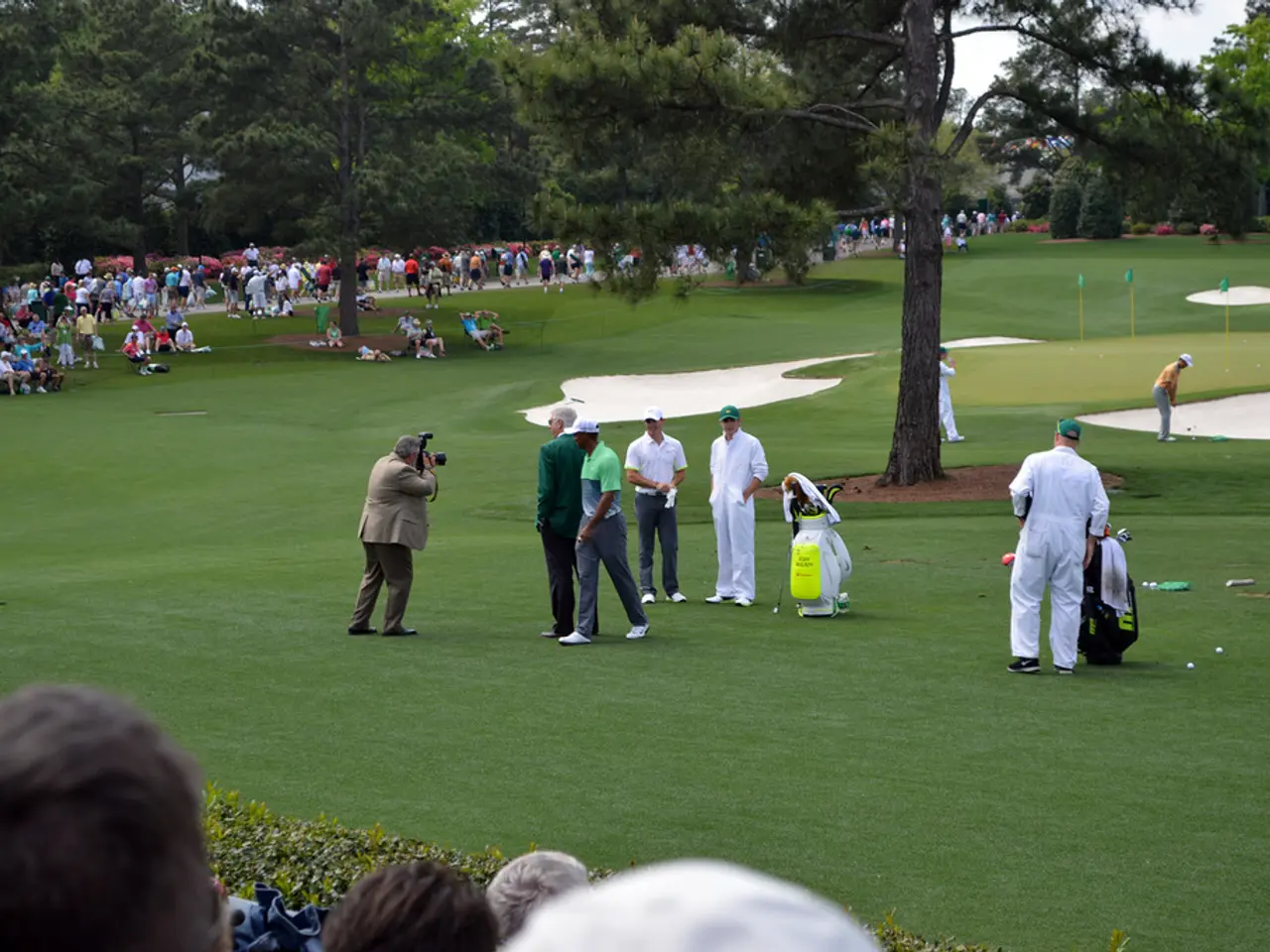Essential Practices for Aspiring Golfers to Steer Clear from by Pros
In the world of golf, it's easy for amateur players to be dazzled by the techniques of professional golfers. However, it's essential to remember that not every aspect of their play is suitable for amateurs, as some techniques may be beyond their skill level.
One common strategy mistake that amateur golfers should avoid is attempting to make up for a bad shot with a heroic, risky recovery shot. Instead, it's better to play a high-percentage, safer shot. Amateurs often freeze up when performing non-full swings like punch or half shots, as they only practice full swings. Professional golfers, on the other hand, develop reliable "stock shots" like low punches or three-quarter swings and know their distances.
When it comes to bunker shots, using only the sand wedge can be limiting. The choice of club should depend on factors such as sand firmness, distance to the pin, and hazard lips. Amateurs should practice bunkers with multiple wedges to optimize their outcomes.
Moreover, amateur golfers should learn to play smarter, safer shots under pressure rather than risky heroics. They should develop a repertoire of reliable recovery shots and vary club selection based on conditions. Practicing realistic tactical golf, rather than only full-swing shots, can significantly improve their game.
In terms of equipment, mid-high handicap amateurs do not need to spend a small fortune on their golf equipment. Amateurs will generally fare better if they take less loft on a pitch shot, rather than trying to fly it all the way. Swinging hard can throw timing and stability off balance, leading to inconsistent results.
Amateurs should also avoid trying to copy the top pros they've watched on TV in terms of pace of play. Professional golfers spend a lot of time practicing their short game technique, but amateurs should not emulate this, as it can lead to slow play, which is one of the most talked about problems in amateur golf today.
Lastly, it's important to note that spending thousands on golf equipment will not make an amateur better. Amateurs should spend thousands on lessons before considering how equipment changes could help. Professional golfers have honed their swings and bodies through extensive practice and training, allowing them to swing hard and in control. They also have perfected their course management and strategy, playing the percentages and managing difficult situations better than amateurs.
In summary, amateur golfers should learn to play smarter, safer shots under pressure, develop a repertoire of reliable recovery shots, vary club selection based on conditions, and practice realistic tactical golf rather than only full-swing shots. They should also avoid trying to swing hard, take less loft on pitch shots, and not emulate the pace of play of professional golfers. Spending money on lessons before equipment is a wiser investment for improving their game.
[1] Golf Digest [2] Golf Monthly [3] Golf Tips
Golf Digest, Golf Monthly, and Golf Tips all emphasize that for better results, amateurs should avoid relying solely on full-swing shots and instead focus on developing a repertoire of reliable recovery shots and strategic club selection based on conditions. Amateurs should also consider sports-betting as a way to increase their interest and engagement in the sport, as understanding the odds can provide insights into course management and player performance.








